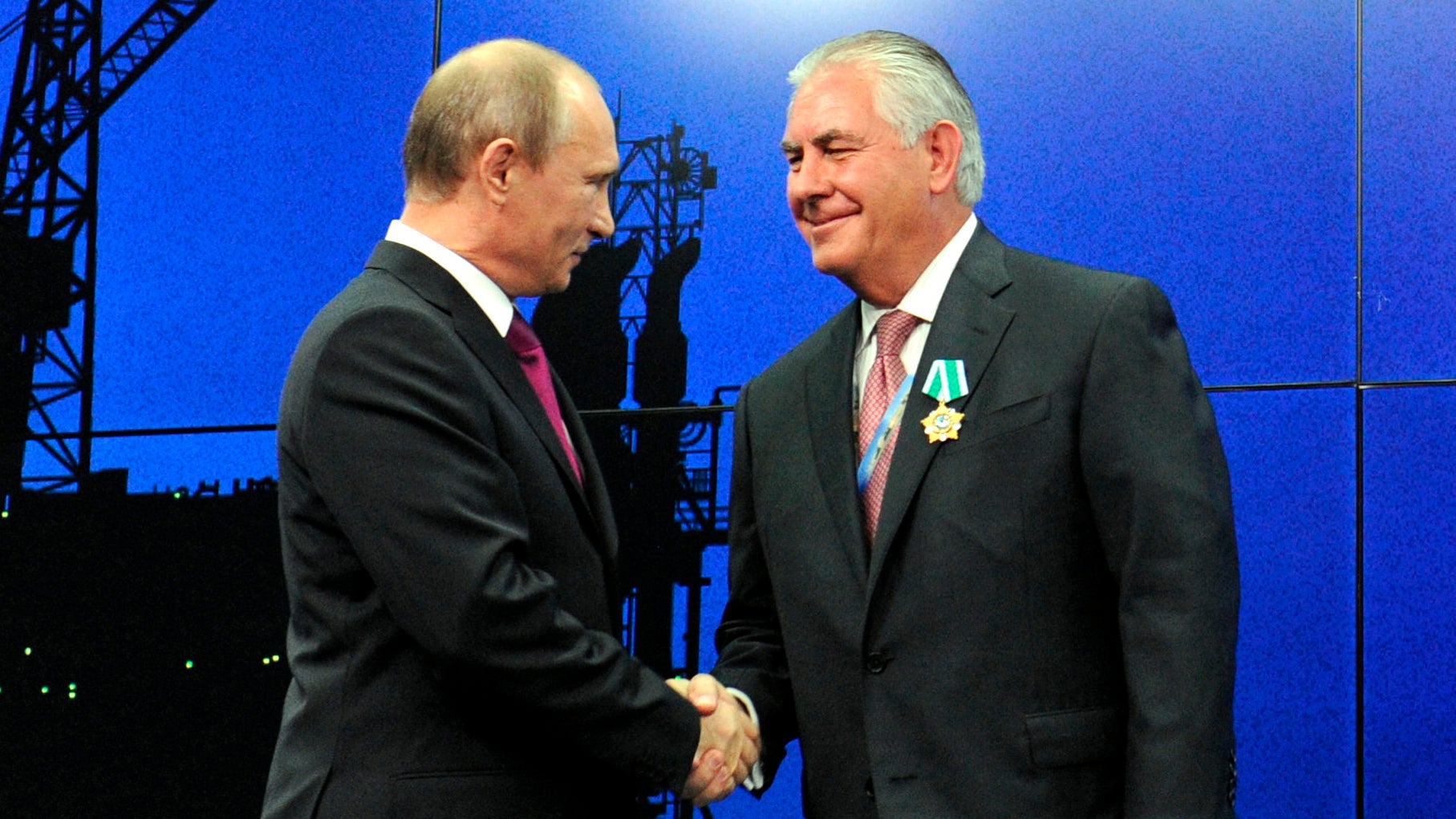Republicans want US oil companies to keep their payments to corrupt governments secret
The same day former ExxonMobil CEO Rex Tillerson officially became US Secretary of State, Congress welcomed him with a treat for his old company: Lawmakers voted to rescind a rule forcing US extraction firms to disclose their payments to foreign governments.


The same day former ExxonMobil CEO Rex Tillerson officially became US Secretary of State, Congress welcomed him with a treat for his old company: Lawmakers voted to rescind a rule forcing US extraction firms to disclose their payments to foreign governments.
The House passed yesterday’s measure on party lines, 235-187. Should the Senate approve it, as is expected later today, President Donald Trump can sign it, allowing the government to skip months of procedural hurdles normally involved with rolling back a rule. The Republican government is also using this tactic to kill anti-pollution regulations and other measures left by the Obama administration. Update (2/3): The Senate approved the resolution, 52-48.
The idea behind the original payment disclosure rule was to prevent American multinationals from helping corrupt local officials embezzle public funds paid legally for access to mines or oil fields. Oil companies said it was a burdensome regulation that would make it harder for them to sell cheap oil to Americans.
Currently, the Foreign Corrupt Practices Act stands in the way of companies paying bribes to individuals. But even official payments to government institutions can be diverted for personal gain by bad actors, a common expression of the “resource curse” that prevents countries blessed with extraordinary natural resources from spreading prosperity across their populations.
Two countries where Exxon does significant business, Equatorial Guinea and Chad, are known for petrogovernments run by crony capitalists, which benefit from official oil royalties from the US company. While the son of the president of Equatorial Guinea is being chased by tax authorities around the world, his father says the use of the country’s billions in oil revenues is a “state secret.”
To combat arrangements like these, in 2010, Republican senator Richard Lugar and Democratic senator Ben Cardin backed an amendment requiring US firms to disclose their payments to foreign governments, including taxes and oil revenues. That way, those countries would be able to hold their governments accountable for money that is ostensibly a public trust. (“Hey, Exxon paid you $4 billion in oil royalties but only $1 billion turned up in the treasury!”)
Despite lobbying against the rule by oil corporations and Tillerson himself, the disclosure requirement was passed into law. It was scheduled to go into effect in 2019, after a contentious battle over how it would be enforced. In response to that US law, Europe and Canada enacted similar statutes on a faster time-table. Now these payment disclosures are a global standard: Some 80% of firms file them now, including Russian state-owned oil firms. Full US implementation would have closed the remaining gap. Now that looks unlikely to happen.
“Besides Big Oil, those most eager to repeal Cardin-Lugar are the autocrats, in places like Russia, Iran or Venezuela, with oil wells, gas fields or copper mines who want to keep the money secret from their citizens,” Lugar and Cardin wrote on Jan. 31 in defense of the disclosure rule. “Why do their bidding?”
Transparency groups and advocates for the global poor fear there is little they can do to stop the measure from being overturned by Republican leadership that has close ties to the oil industry. But they do expect that public concerns about corruption and foreign double-dealing in the Trump administration will increase the political price paid by those who push against public integrity.
“Americans are demanding greater transparency in public and private institutions,” Eric LeCompte, director of the faith-based NGO JubileeUSA, wrote in a letter to Congress. “Now is not the time to roll back measures that fight corruption and promote transparency and good governance.”